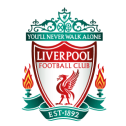With another year — and another decade — behind us, we decided to go back and name a “Team of the Year” for each of the past 10 years. This isn’t another “team of the season” exercise, either: we wanted to know who the best club teams in Europe’s Big Five leagues were for each calendar year of the 2010s.
The main criteria: points per game and goal differential per game. Points tell us how successful a team was at winning matches (duh) and goal differential gives us a better sense of how dominant a team actually was. Champions League trophies will also be considered but not decisive; otherwise, this would just be a list of all the teams that won the Champions League, and you’ve already got Wikipedia for that.
Let’s get to the list!

2010: FC Barcelona
Jose Mourinho is going to be mad, isn’t he? Despite winning the Champions League, Serie A and the Club World Cup in the 2009-10 season, Inter Milan don’t win the team of the year award. Why? Well, from Jan. 1 to Dec. 31, they weren’t even the best team in their own country. Hell, they weren’t even the second-best team in their own country. Roma finished 2010 averaging 2.13 points per game and AC Milan collected 1.92 — Inter were down at 1.83.
Barcelona, meanwhile, claimed an absurd 103 points in 39 games (2.64 per match), scoring 113 goals and conceding 24. Yes, they actually lost to Inter over two legs in the Champions League, but two games is not enough to close the gap built up over the year, especially given the razor-thin margin of those games. Also, Barcelona got their revenge on Mourinho with the 5-0 win over Real Madrid in November of the same year.
Blame Rafa Benitez if you must. After taking over for Mourinho, his Inter won 1.53 points per match for the remainder of 2010. That’s tied for 31st in Europe — behind the likes of Palermo, Everton, Getafe, Rennes, and Freiburg — and the reason why Barcelona is the team of the year.

2011: FC Barcelona
The dominant team of the beginning of the decade rightfully earns a second straight “Team of the Year” prize but this choice was closer than you might think.
In 2011, Barcelona won their third-straight La Liga title and their second Champions League in three years. After cycling through a number of big-name strikers, Pep Guardiola finally achieved a perfect balance along the front line, with David Villa cutting in from the left and scoring the goals, Pedro doing the dirty work from the right and Lionel Messi playing centrally in his rightful place as the sun to Barcelona’s solar system. In 2011, they averaged 72 percent possession; no one else on the continent was north of 62.
“They’re the best in Europe, no question about that,” said Sir Alex Ferguson after his Manchester United lost 3-1 to Barcelona in the Champions League final. “In my time as a manager, I would say they’re the best team we’ve faced.”
And yet, Ferguson also said “great teams do go in cycles and they’re at the peak of the cycle they’re in at the moment.” He was right — Guardiola would leave the club just a year later — but the shifting of the guard had already started to begin in 2011. Over the calendar year, Mourinho’s Madrid won 91 points in La Liga to Barcelona’s 90. But one point isn’t enough to overcome Pep & Co’s trophy haul.

2012: FC Barcelona
So, they didn’t win the Champions League and they didn’t win La Liga, but they still were the best team of the year? Well, it’s not going to be Chelsea, who did win the European Cup but who were also 14th in Europe in terms of points per game. Mourinho got his Madrid a La Liga title — something the club hadn’t won in four seasons and wouldn’t win again for another five — but they weren’t as good as the Catalan club.
In 2012, Barcelona led all clubs in points per game (2.64) — next best were United and Madrid, tied at 2.38 — and they were the only team to outscore their opponents by more than two goals per match (2.08). These teams weren’t quite as memorable as other Barca vintages — the tail end of the Guardiola Era and the first half of the late Tito Villanova’s only season as manager — but 2012 is the sweet spot that combines Messi’s two best seasons as a pro. That year, he scored 59 league goals in 38 league games, the best mark in Europe by a margin of 19 freaking goals. He also threw in 13 assists (tied for fourth-most) and led the continent in both dribbles and through-balls completed. Need I say more?

2013: Bayern Munich
Finally, a new name and along with it, perhaps the most dominant year on this list. In 2013, under Jupp Heynckes and Pep Guardiola (sensing a theme yet?), Bayern Munich played 33 Bundesliga matches. They won 30, drew three and lost none for an insane 2.82 points per match. They scored 96 goals and allowed 19. They were fractionally behind first-place Real Madrid in goals scored per game (2.92 to 2.91), and they were the only club to allow fewer than 0.60 goals per match. Their per-game goal differential was 2.33; no-one else even broke 2.00. They’d caught up to Barcelona’s possession machine — both clubs hung right around 67 percent — and they also led everyone else in shots conceded, passes completed into the opposition box, and touches in the opposition box.
Oh, and did I mention that they won the Champions League?
One other quick note: If you want to see a complicated reaction from your favorite Arsenal fan, you should tell ’em that the Gunners led all Premier League teams in points won in 2013. If only the season started on January 1…

2014: Real Madrid
In Guardiola’s first full calendar year in charge at Bayern, they dropped down to 2.60 points per game. Pathetic. Real Madrid, however, still led all of Europe in PPG: Juventus were second with 2.57, Real Madrid were third with 2.36.
Ultimately, it comes down to Madrid or Munich. While Bayern racked up points at a higher rate, Real led all clubs with a 2.22 per-game goal differential. Guardiola’s side, though, were the only other team above 2.00 (2.11). Madrid had the best attack in the world (3.06 goals per game) and Munich had the second-best defense (0.54 goals allowed per game). To put a finer point on their relatively equal best-ness: they each attempted exactly 18.86 shots per match, tied for the most in Europe.
Now, if only there were a way to break the tie… oh right, there is. Real Madrid completely vaporized Bayern Munich, 5-0, across the two legs of the Champions League semifinals. They’d go on to win the final against Atletico Madrid, 4-1, in extra time, spurring on an incredible five-year stretch of European dominance that redefined the club’s place within the sport’s 21st-century hierarchy. Cristiano Ronaldo scored 17 goals and assisted on five more in the 2013-14 Champions League. That’s 22 goals in which he was a direct factor; no other player in the competition had more than 10.
2015: FC Barcelona
Avert your eyes again, Arsenal fans. In 2015, buoyed by the creative peak of Mesut Ozil, one of the great creative players of the modern era, the Gunners averaged 2.13 points per match. That’s significantly more than any other Premier League club — Manchester City sat second with 1.89 — and was the fifth-best clip of anyone in Europe. The four teams above them are the four dominant clubs from the middle part of the decade: Paris Saint-Germain (2.53), Barcelona (2.47), Bayern Munich (2.35), and Real Madrid (2.23).
PSG aren’t winning this, mind you — not this year, and not any year until they do something in the Champions League. Real Madrid lose out since, in addition to winning fewer games, they lost out to Barcelona in both La Liga and the Champions League. Once again, the same goes for Bayern Munich. Despite performing at roughly the same dominant level as the best team in Spain, they got annihilated by the best team in Spain, losing 5-3 over two legs.
From a completely subjective standpoint, I think the early Luis Enrique Barcelona teams with Messi, Luis Suarez and Neymar are the best teams I’ve ever seen. Not only could they dominate they ball like the Barca sides of old — only Bayern averaged more possession in 2015 — but they could also sit back and counter with the greatest trio of attackers in the history of the sport?
While Pep’s Barcelona teams seemed to complicate the sport to the point of impenetrability, this side did the opposite: if you can score with only three players and defend with the other eight, this silly game becomes pretty simple.

2016: Real Madrid
I really want to give this to Juventus. They made the Champions League final in 2015 and followed that up with the best domestic calendar year in Europe. They averaged 2.63 points per game and, most important of all, they did it in their own way. To win that many points, you typically have to crush your opponents with a highly leveraged approach that includes a lot of high pressure and high possession. For most of this decade, the teams that have dominated have done so through a style that lights up the attacking end and concedes a tiny number of high-quality chances on the other side.
Not Juventus. In 2015, they allowed the fewest goals per game in Europe (0.53 points per game) and they did it by both limiting the number (third-fewest shots allowed per game) and the quality of the chances they allowed (second-lowest expected-goals-per-shot number). Unfortunately, Real Madrid were only slightly behind Juventus in points won (2.53) and had a significantly better goal differential (2.03 to 1.66). On top of that, Real Madrid won the Champions League, while Juventus went out to Bayern Munich in the Round of 16.

2017: Monaco
This is the hardest choice on the list.
Is it Barcelona, who led all teams in points per game and goal differential but also didn’t win their league or make the semifinals of the Champions League? Is it Paris Saint-Germain, who were second in both the aforementioned statistical categories but also lost Ligue 1 despite a massive financial advantage?
Is it Napoli, who didn’t win Serie A but had the third most-points in the world in 2017? Is it Monaco, who were fourth in points, won Ligue 1, and made the Champions League semifinals? Is it Manchester City, who were fifth in points thanks to the first half of the Centurions season?
Is it Juventus, who were sixth and made the Champions League final but also didn’t even have the most points in their own country? Is it anyone in the rest of the top 10: Bayern Munich (who fired their manager), Roma (third-most points in Italy), Real Madrid (won the Champions League again and La Liga but only had the ninth-most points on the continent) or Chelsea (won the Premier League but weren’t even in the Champions League until the fall and had fewer points than City)?
Given all of the potential caveats, this should probably go to Barcelona; they have the most points and they outscored their opponents by the largest margin. Or maybe Madrid; comparatively, they’d be the worst team (points-wise) to earn our award but they also won the two things they’re supposed to win. However, given that this is a totally subjective exercise and given how unlikely it was for Monaco to be this good, they are the most fun choice and therefore, they are the choice. Also, we need at least one short-lived supernova side that would soon get stripped for parts on this list.
Leonardo Jardim’s team won 2.47 points per game in 2017 and then plummeted all the way down to 1.41 the following year. Six players from the 2016-17 team — Kylian Mbappe, Thomas Lemar, Benjamin Mendy, Bernardo Silva, Fabinho, and Tiemoue Bakayoko — were sold for at least $45 million each. That group includes multiple World Cup winners and a handful of key contributors to the next two teams on our list.

2018: Manchester City
Despite 2018 being a part of the two best seasons in Premier League history — 100 points in 2017-18, 98 points in 18-19 — City somehow don’t have the best or second-best points per game haul of the year. First is Juventus, with 2.66 points per game, and second is PSG at 2.50. City are in third but they’re not alone, either, tied at 2.38 PPG with Liverpool, who also beat them three separate times in 2018 and reached the Champions League final.
However, City produced a better goal differential than every team other than Paris Saint-Germain. They led the continent in possession (nearly 70 percent) by a significant margin, took the second-most shots, conceded the fewest shots, completed the most passes into the penalty area and made the most touches inside the box. Sound familiar? Yep, this was the year when Manchester City became Barcelona and Bayern Munich. Despite a bit of a drop-off right around the festive fixtures that deflated their PPG, they were the side that defined the sport from start to finish in 2018.

2019: Liverpool
At the end of the first year of our hallowed competition, Liverpool were being coached by Roy Hodgson and consistently trotting out a starting XI that included… Paul Konchesky. In 2010, they won the eighth-most points… in the Premier League, sandwiched between two teams, Blackburn Rovers and Stoke City, who have since been relegated. Now Liverpool are perhaps the easiest choice on this list.
In 2019, they won more points per game (2.65) than any other team. (For reference, the rest of the top five: Juventus (2.43), City (2.40), PSG (2.39), Barcelona and Bayern Munich (2.26)). Liverpool also won the Champions League. They have the fourth-best goal-differential — 1.65, behind PSG, City, and Bayern — a number that’s not higher because of their steady succession of one-goal wins this season.
But maybe the most surprising shift isn’t from where they were at the beginning of the decade and instead from where they were when Klopp arrived in 2015. Over his first few seasons, this team was a high-wire, helter-skelter attacking force that descended into crisis whenever the ball entered their defensive third. In 2019? They’ve allowed fewer goals (0.68 per game) than anyone else.
Credit: Source link